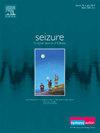Lack of association of first and second-line medication dosing and progression to refractory status epilepticus in children
IF 2.7
3区 医学
Q2 CLINICAL NEUROLOGY
引用次数: 0
Abstract
Purpose
Evaluate the relationship between first and second-line medication dosing and progression to refractory status epilepticus (RSE) in children.
Methods
This is a retrospective analysis of prospectively collected data from September 2014 to February 2020 of children with status epilepticus (SE) who received at least two antiseizure medications (ASMs). We evaluated the risk of developing RSE after receiving a low total benzodiazepine dose (lower than 100 % of the minimum recommended dose for each benzodiazepine dose administered within 10 min) and a low first non-benzodiazepine ASM dose (lower than 100 % of the minimum recommended dose of non-benzodiazepine ASM given as the first single-dose) using a logistic regression model, adjusting for confounders such as time to ASMs. The proportion of patients receiving low first non-benzodiazepine ASM doses was calculated and a logistic regression model was used to evaluate risk factors for low dosing of the first non-benzodiazepine ASM.
Results
Among 320 children, 170 (53.1 %) developed RSE, and 150 (46.9 %) responded to the first non-benzodiazepine ASM dose (non-RSE). One hundred thirty-seven (42.8 %) received a low total benzodiazepine dose, and 128 (40 %) received a low first non-benzodiazepine ASM dose. The odds of developing RSE were not higher after a low total benzodiazepine dose (OR=0.76, 95 %CI 0.47–1.23, p = 0.27) or low first non-benzodiazepine ASM dose (OR=0.85, 95 %CI 0.42–1.71, p = 0.65). Receiving a low first non-benzodiazepine ASM dose was independently associated with having received a low total benzodiazepine dose (OR=1.65, 95 %CI 1.01–2.70, p = 0.04).
Conclusion
For most patients, dosing variability in first and second-line medications for SE was not the sole clinical feature predicting progression to RSE in this cohort of benzodiazepine-resistant patients. Identification of additional modifiable clinical biomarkers that predict progression to RSE is needed. Though lower ASM doses did not predict RSE in this model, the administration of ASMs at doses likely to prevent RSE remains crucial in SE treatment.
一线和二线药物剂量与儿童难治性癫痫进展缺乏关联。
目的:评估一线和二线药物剂量与儿童难治性癫痫状态(RSE)进展之间的关系:这是对2014年9月至2020年2月期间前瞻性收集的数据进行的一项回顾性分析,研究对象是接受过至少两种抗癫痫药物(ASM)治疗的癫痫状态(SE)患儿。我们使用逻辑回归模型评估了接受苯二氮卓类药物总剂量过低(10 分钟内给予的每一剂苯二氮卓类药物低于最低推荐剂量的 100%)和非苯二氮卓类 ASM 首次剂量过低(非苯二氮卓类 ASM 首次单剂量低于最低推荐剂量的 100%)后发生 RSE 的风险,并对混杂因素(如服用 ASM 的时间)进行了调整。计算首次非苯二氮卓类药物 ASM 剂量过低的患者比例,并使用逻辑回归模型评估首次非苯二氮卓类药物 ASM 剂量过低的风险因素:在320名儿童中,170人(53.1%)出现RSE,150人(46.9%)对首次非苯二氮卓类药物ASM剂量(非RSE)有反应。137名儿童(42.8%)接受的苯二氮卓类药物总剂量较低,128名儿童(40%)接受的首次非苯二氮卓类药物ASM剂量较低。苯二氮卓类药物总剂量低(OR=0.76,95 %CI 0.47-1.23,p = 0.27)或非苯二氮卓类药物 ASM 首次剂量低(OR=0.85,95 %CI 0.42-1.71,p = 0.65)后,发生 RSE 的几率并不高。非苯二氮卓类药物首次ASM剂量低与苯二氮卓类总剂量低独立相关(OR=1.65,95 %CI 1.01-2.70,p = 0.04):结论:对于大多数患者而言,治疗 SE 的一线和二线药物剂量变化并不是预测苯二氮卓耐药患者发展为 RSE 的唯一临床特征。还需要确定其他可预测 RSE 进展的临床生物标志物。虽然在该模型中较低的 ASM 剂量并不能预测 RSE,但在 SE 治疗中,以可能预防 RSE 的剂量服用 ASM 仍然至关重要。
本文章由计算机程序翻译,如有差异,请以英文原文为准。
求助全文
约1分钟内获得全文
求助全文
来源期刊

Seizure-European Journal of Epilepsy
医学-临床神经学
CiteScore
5.60
自引率
6.70%
发文量
231
审稿时长
34 days
期刊介绍:
Seizure - European Journal of Epilepsy is an international journal owned by Epilepsy Action (the largest member led epilepsy organisation in the UK). It provides a forum for papers on all topics related to epilepsy and seizure disorders.
 求助内容:
求助内容: 应助结果提醒方式:
应助结果提醒方式:


